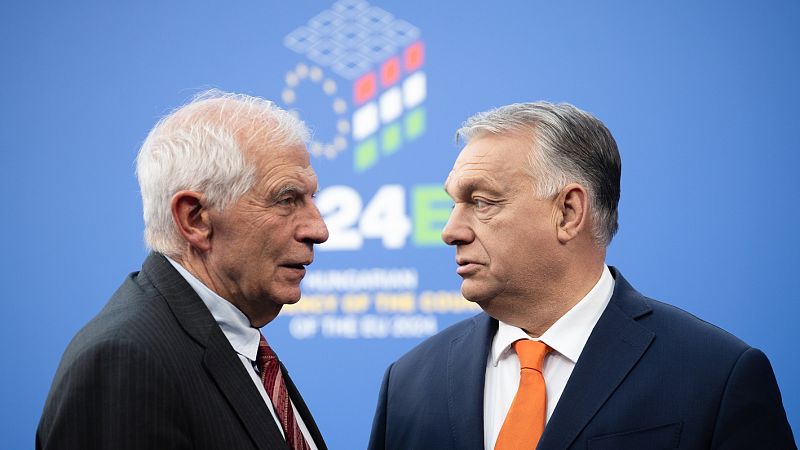World cannot wait on Washington for climate action, EU foreign policy chief warns

Amid fears of president-elect Donald Trump pulling the US out of the global climate talks for a second time, Europe’s foreign policy chief Josep Borrell has said the world can’t wait another four years to act as climate breakdown continues.
“You can put on hold everything but nature,” Borrell said this morning on his way into an informal meeting of EU heads of state and government in Budapest, Hungary.
“The climate will continue changing and we cannot allow ourselves to lose four years on the fight against climate change,” he said. “We cannot tell nature: wait, we are discussing, we are going to have a look at what's happening in the US,” the Spanish diplomat said.
Borrell’s comments came as the EU’s negotiating team, headed by climate commissioner Wopke Hoekstra, prepares to travel to Baku, Azerbaijan, for a global climate summit where world leaders are to focus on financing clean energy and adaptation in developing countries.
As largest contributor among developed countries of public financing, with its €28.6bn in 2023 about a quarter of the global total, the European Commission restated today that it would be pushing for more commitments from “a broader group of contributors” as a precondition for any increase. The US is among those targeted.
Besides the money talk, the summit will be keenly watched for signs that countries are prepared up ratchet up their domestic climate action, although plans outlining their path up to 2035 are not due until next year, and will be discussed at a COP30 in Brazil.
Last year’s host, the United Arab Emirates, was the first out of the box yesterday, with a plan to cut net greenhouse gas emissions by 2035 to 47% below 2019 levels, although climate campaigners pointed out that the petroleum-rich Gulf state is not committing to reducing oil and gas production.
The EU, whose newest target is 55% below 1990 levels by the end of the current decade, will not be in a position to put a new ‘nationally determined contribution’ to the global effort on the table in Baku.
Hoekstra confirmed yesterday that a concrete proposal for a new 2040 target - which EU climate scientists have advised must be at least 90% - is unlikely to emerge during the first 100 days of the next European Commission, which will take office in December at the earliest.
Officials hope that the 55% target and the fact that the EU’s emissions fell 8% in the year to 2023 will allow the bloc to maintain the climate leadership role it has assumed at COPs in recent years.
However, they acknowledge in private that doubts over the future role of the US in the global process will complicate discussions, while some are wary of efforts by Azerbaijan to use the COP as a public relations exercise.
The EU will be maintaining a relatively low-key presence in Baku, compared to the Dubai COP28 last year, where it ran a large pavilion and hosted dozens of side events. European Council president Charles Michel is, however, due to attend the global leaders’ sessions at the start of the summit.
Energy commissioner Kadri Simson will also be there on 14-15 November for discussion on the “transition away from fossil fuels” that was hailed as a breakthrough agreement in Dubai last year, albeit no deadline was set.
Yesterday

